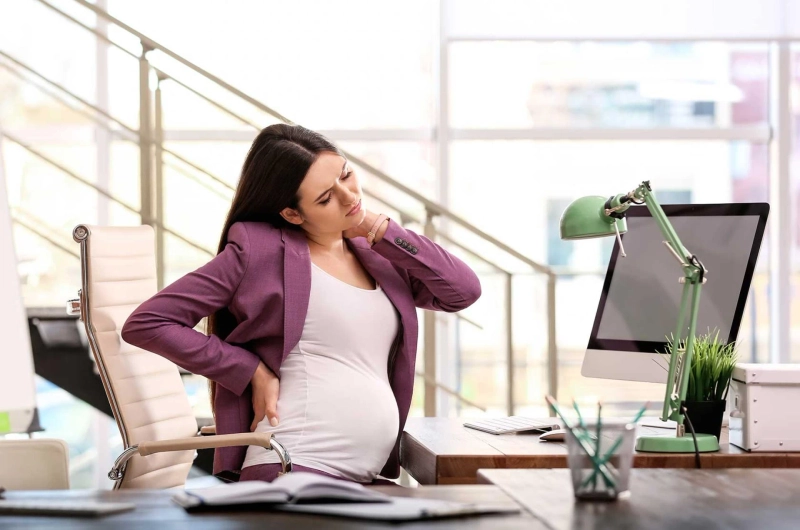Neck And Shoulder Pain During Early Pregnancy
If you are one of the many women who experience neck and shoulder pain during early pregnancy, there is a good chance that it is not related to an early pregnancy symptom. As a matter of fact, it could be due to the aging process in your body. When you are pregnant, your hormone levels are higher and this can sometimes cause joint stiffness and soreness in both your upper and lower extremities.
Neck Pain and Pregnancy Hormones:
During early pregnancy, neck pain is a common pregnancy symptom. The hormone progesterone causes cervical mucus to thicken, which causes the cervix to become more rigid and firm. This can cause increased pressure in the neck, which can lead to soreness or pain in the shoulders, upper back and arms.
The hormone relaxes blood vessels, making them more fragile and prone to injury. This can result in bruising and bleeding under your skin (hematoma).
You may also experience swelling in your face and hands during pregnancy due to the changes in hormone levels.
When Neck and Shoulder Pain Indicate a Problem:
While it may seem strange, neck and shoulder pain can be a sign of a serious medical condition. In fact, it's estimated that one in five pregnant women experiences some form of low back or neck pain.
Many mothers-to-be are surprised to learn that the simple act of lifting their heads for a few seconds can cause some serious discomfort. This is because the weight of your growing uterus puts pressure on your spine and neck.
So, what exactly causes neck and shoulder pain during pregnancy? Here are some common causes:
Pregnancy Weight Gain:
The majority of women who experience neck or shoulder pain during pregnancy gain between 20 and 30 pounds over their pre-pregnancy weight. The extra weight puts an additional strain on your spine, which can lead to lower-back pain or even sciatica (pain running down the back of one or both legs).
Birth Control Side Effects:
If you're taking birth control pills to prevent getting pregnant, you might be surprised to learn that they can also cause severe headaches and migraines. Birth control pills contain progesterone, which is closely related to estrogen — two hormones that affect mood. Some women find that taking birth control pills leads to mood swings and increasing anxiety.
Seeking Assistance for Back, Shoulder, and Neck Pain:
During pregnancy, the weight and swelling of your uterus causes your body to put pressure on your lower back and pelvis. The increased circulation that occurs during pregnancy can cause muscles around your neck to tighten, which can make it more difficult to turn your head or stretch your neck.
The main treatment for these types of symptoms is rest. If you have a backache, lying face down may help relieve it temporarily by relieving pressure on the lower back. You should avoid lifting heavy objects while pregnant, since this may strain your muscles even further. If you have shoulder pain or frequent headaches, keep in mind that these symptoms may also be related to poor posture or a muscle imbalance in one of your shoulders.
If you experience headaches or ringing in the ears, see an ear specialist (a physician who specializes in treating hearing problems). You might also want to see an orthopedic specialist if you have trouble walking or standing due to leg or knee pain.
How To Prevent Shoulder Pain?
There are many things you can do to prevent shoulder pain during early pregnancy. These include:
Get regular prenatal check-ups to ensure that your health is normal and that you're getting all the vitamins and minerals you need. If your doctor finds any problems, they'll work with you to find an appropriate treatment plan.
Eating a healthy diet that includes plenty of fruits and vegetables is very essential as these foods are packed with nutrients that help prevent painful conditions, like constipation and hemorrhoids.
Drink plenty of water throughout the day to stay hydrated because dehydration can cause headaches and fatigue as well as reduce blood circulation in your body which could lead to poor circulation in your arms and hands as well as numbness in your fingers or toes which could lead to more serious problems like nerve damage or even amputation.
Don't lift heavy objects (or anything at all) until your doctor tells you it's safe to do so. If lifting something heavy makes your shoulders hurt, try using a stool or chair instead. You might also want to consider hiring someone else to do the lifting if possible — this can be a good way to save money while still providing some relief from pain caused by carrying items around all day long!
Don't exercise strenuously until your doctor says it's OK — even walking can be hard on your body if you haven't been able to exercise regularly throughout your pregnancy! Instead, take walks both morning and evening with someone who's familiar.
Conclusion:
In the last trimester of pregnancy, pain in the neck and upper back commonly occurs due to the changing position of a pregnant woman's body. The weight of the upper body is now often carried by the shoulders since more weight is being stored in the abdomen and lower back.
0



